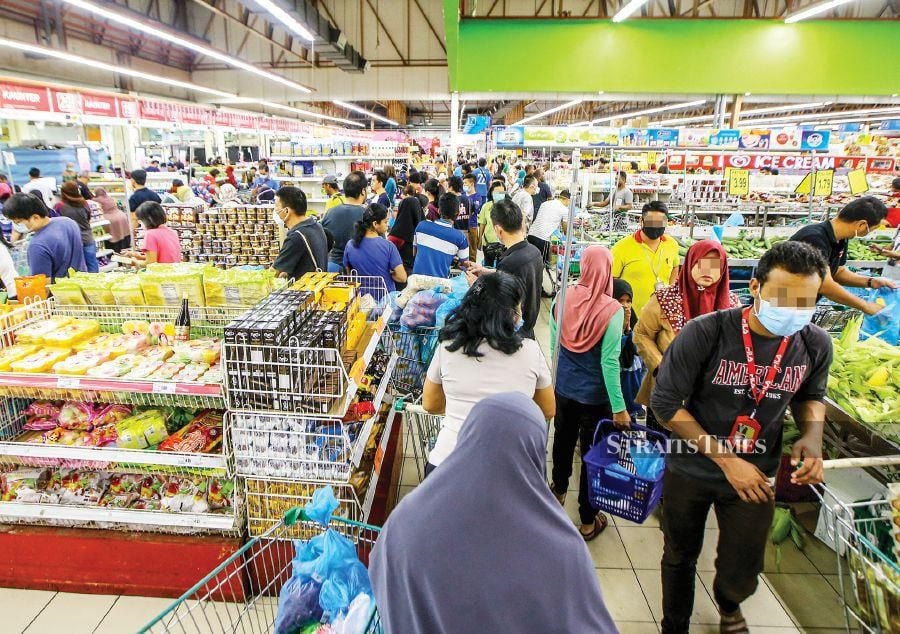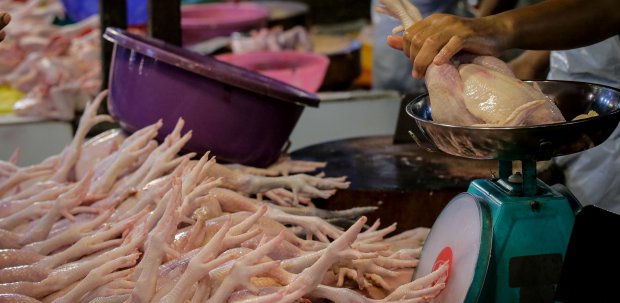KUALA LUMPUR: Bank Negara Malaysia’s prediction on the rise in unemployment rate of 4.0 per cent involving 629,000 individuals this year would weigh on consumer spending.
Socioeconomic Research Centre (SERC) executive director Lee Heng Guie said unemployment could rise higher with more retrenchments despite the pay cuts.
“The biggest worries are that those who were affected by pay cut or got retrenched during six months’ moratorium on loans facilities. They could face the cash flow problem to resume their loans repayment after the expiry of moratorium period,” he said.
Lee said however the country could not avoid an outright recession this year, although the government had allocated over RM250 billion for the Prihatin Rakyat Economic Stimulus Package, which accounted 17 per cent of gross domestic product (GDP), that would soften economic damages and economic contraction.
SERC said it had also revised downward Malaysia GDP’s projection of -3.0 per cent for this year, attributed to considerable downside risks given the potential broadening disruptions on economic activities if the virus outbreak prolongs.
“With a subdued headline inflation or even deflation as projected by Bank Negara Malaysia to between +0.5 per cent and -1.5 per cent in 2020, the central bank’s monetary policy will continue to remain highly accommodative to complement the expansionary fiscal policy to counteract the demand and supply shocks,” he said.
The projected deflation is largely attributable to the plunging global crude oil prices that have translated into lower fuel prices as well as moderating consumer demand.
Lee said Malaysia cannot be spared from a fallout in global trade, extreme financial markets’ volatility, shaken domestic consumers’ and businesses’ sentiments as well as a sharp fall in private investment.
He said businesses in sectors such as tourism, hospitality, entertainment, air transportation, consumer goods and retail have been hard-hit.
“Foreign tourists are expected to resume travelling until the global outbreak stabilises and sentiment gradually restored.”
He said businesses in property sector are also expected to worsen due to extremely cautious consumer sentiment to commit buying big ticket items amid the stubbornly property overhang.
“Export-oriented industries such as electrical products and electronics, palm oil as well as oil and gas are exposed to shrinking global demand and slumping prices.
“This is because Malaysia’s major trading partners such as the United States, Europe and China as well as Asean countries are going through a tough time of Covid-19’s inflicted economic and financial disturbances.”
Lee said the key outlook issue is to gauge how lasting damage, the depth and duration of 2020 recession from the Covid-19 shock.
SERC’s estimated that Covid-19 pandemic will run its course and dissipate gradually going into the third quarter of 2020.
“We expect two or three consecutive quarters of contraction. The 28-days movement control order (MCO) is expected to have a significant knock-down impact in the second-quarter (Q2) given that about 77 per cent of small medium enterprises (SMEs) surveyed temporary closed business operation.”
Meanwhile, he said those companies and industries allowed to operate are generally running at around up to 50 per cent capacity.
“Softer discretionary spending and restricted spending throughout the MCO have resulted in lower than normal spending.
“This is a worldwide virus attack and it is likely to take at least six to 12 months from containment, stabilisation and recovery before people and businesses are returning to normalcy.”
SERC also expects continued stricter physical procedures and measures, including social distancing at public places, even after the MCO is lifted.
Juwai IQI chief economist Shan Saeed expected GDP to slow down in the first two quarters of 2020, citing that the recovery likely to reach 1-2.0 per cent faster than market expectation.
“However, once China comes back into the market by second-quarter of 2020 in full throttle then, we can expect lot of movement in the growth trajectory on the premise of technology, logistics , China's Belt and Road Initiative, Chinese investment and domestic demand, whch are good variables for Malaysian economic outlook,” he said.
Juwai IQI market intelligence report revealed that domestic demand to remain strong and the government maintains its macroeconomic stability.
It noted that economy has the resilience to bounce back, while macro-economic fundamentals are still intact despite structural hiccups and unpredictable exogenous variables.
“Ringgit to main structural stability and could hover between 3.97 and 4.30 against the US dollar for 2020.
“In the last 17 days, ringgit has appreciated 2.0 per cent against US dollar. We expect US dollar heading for tail end risk as Quantitative easing round 5 has started.
“Federal Reserve will print more money to weaken the dollar further and thus markets are repricing the dollar movement on the downward side for the remaining three quarters,” he said.






